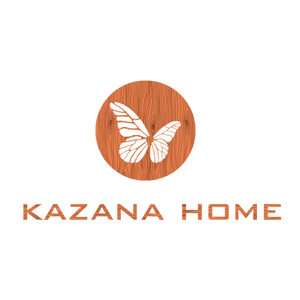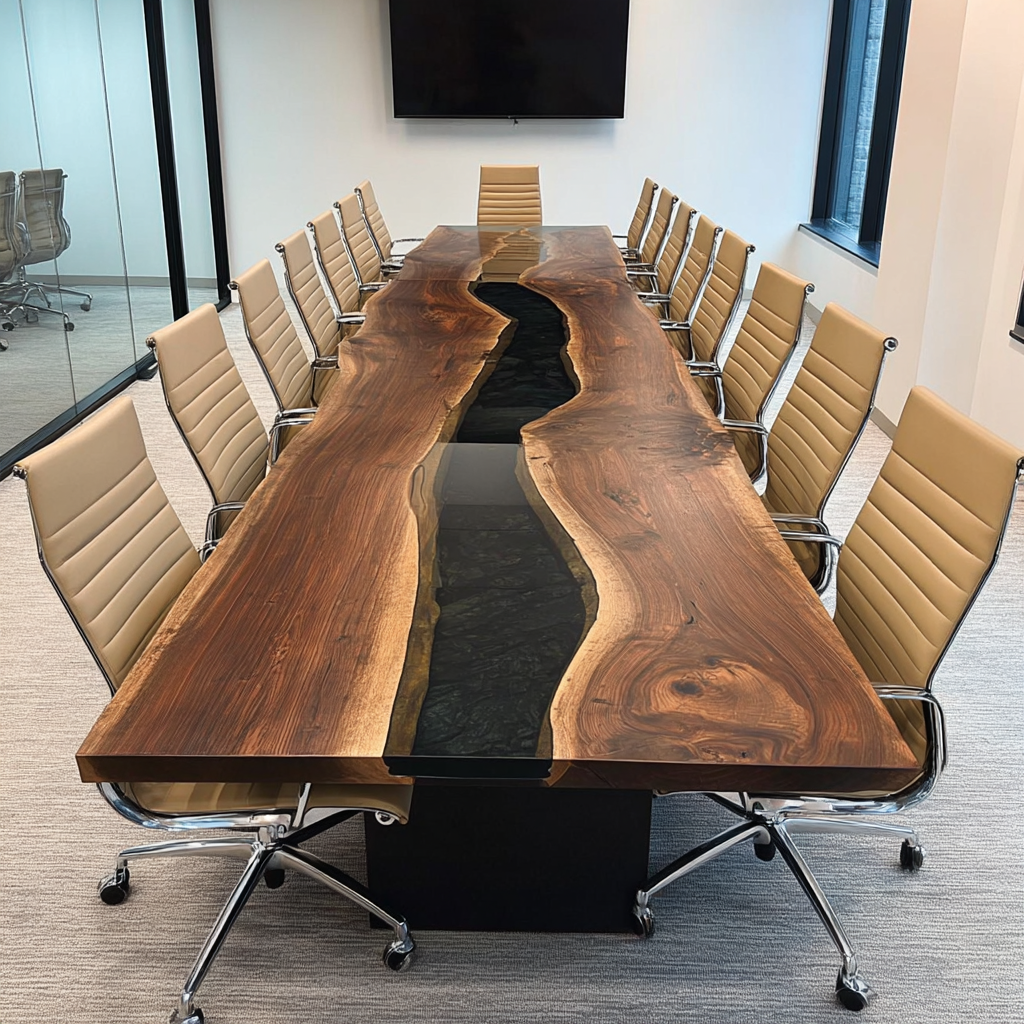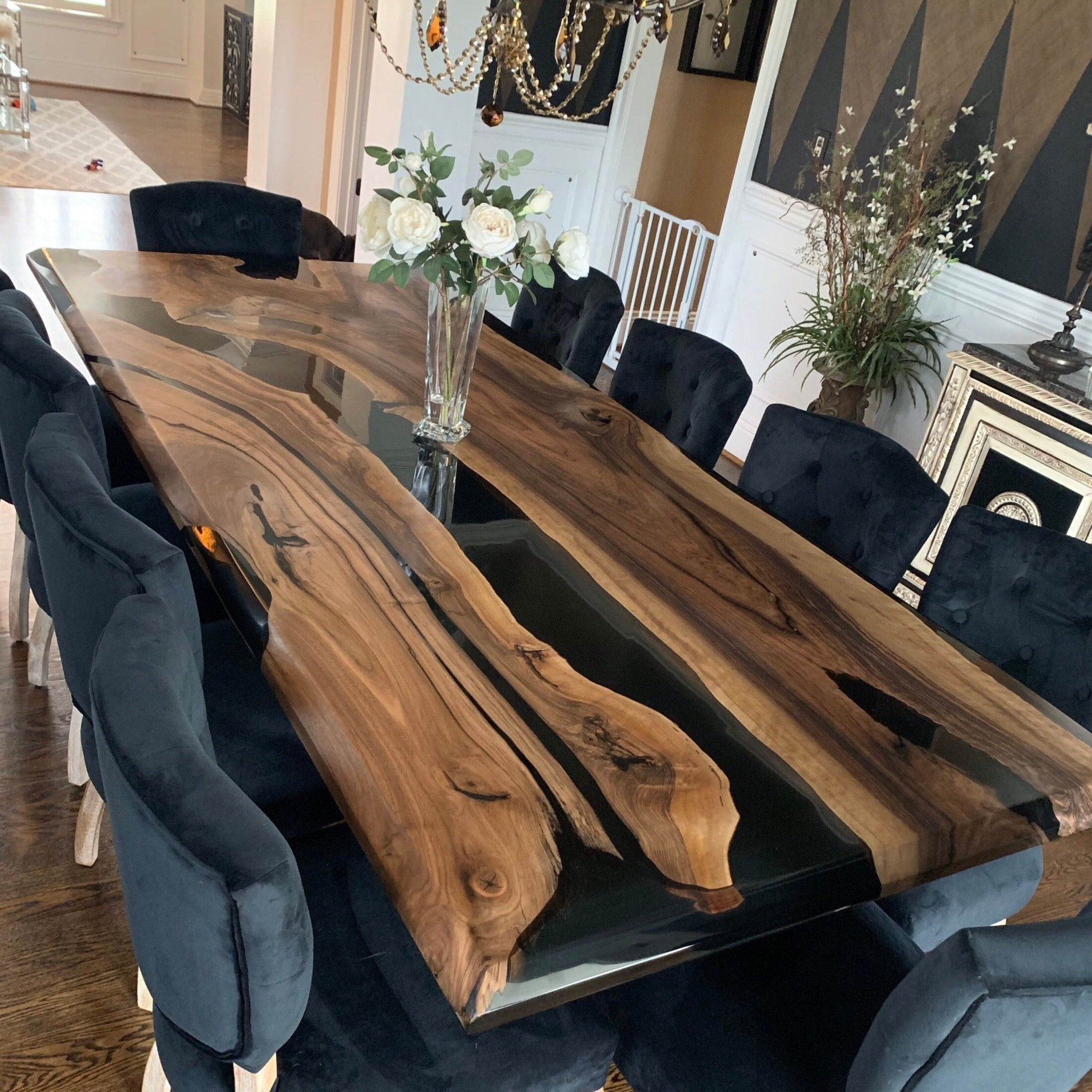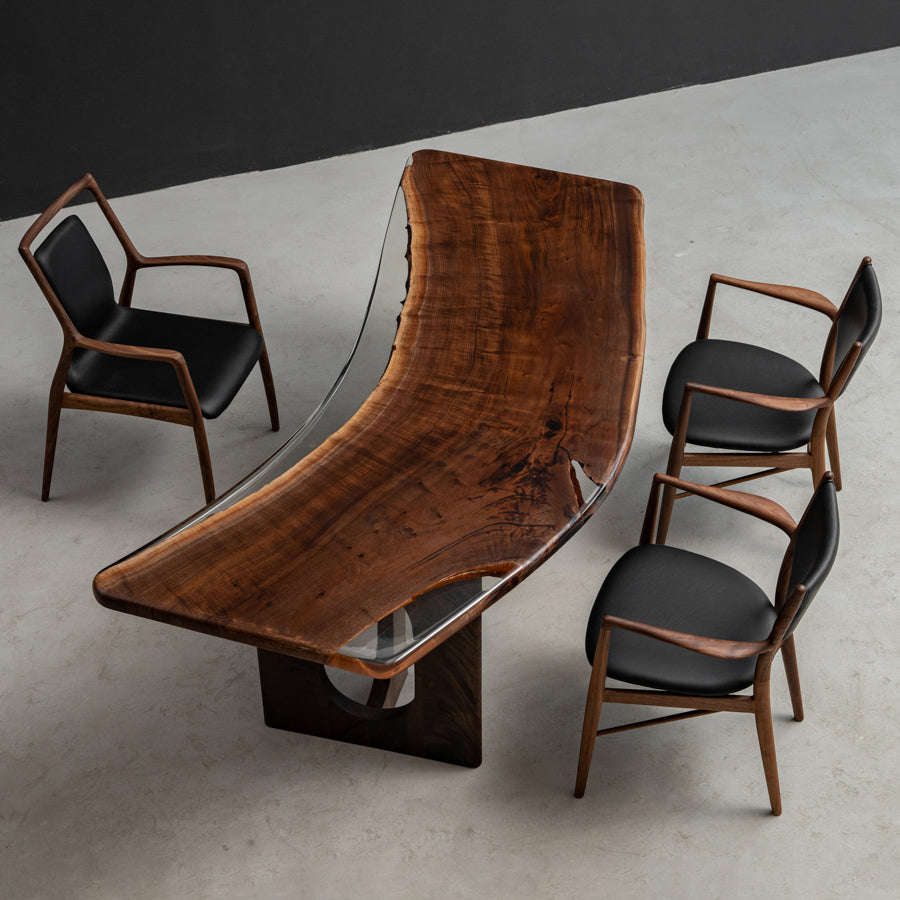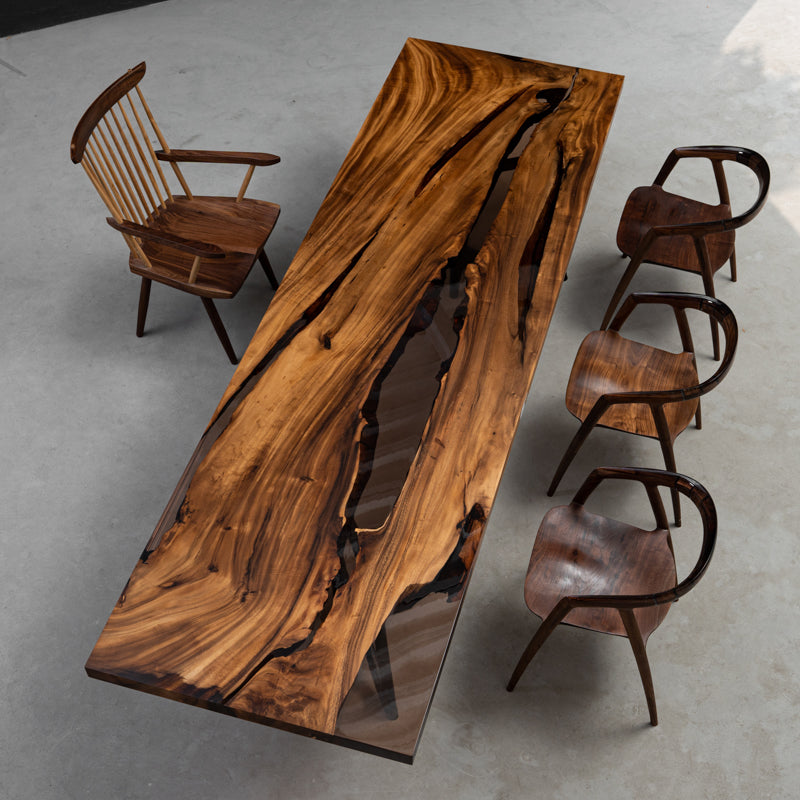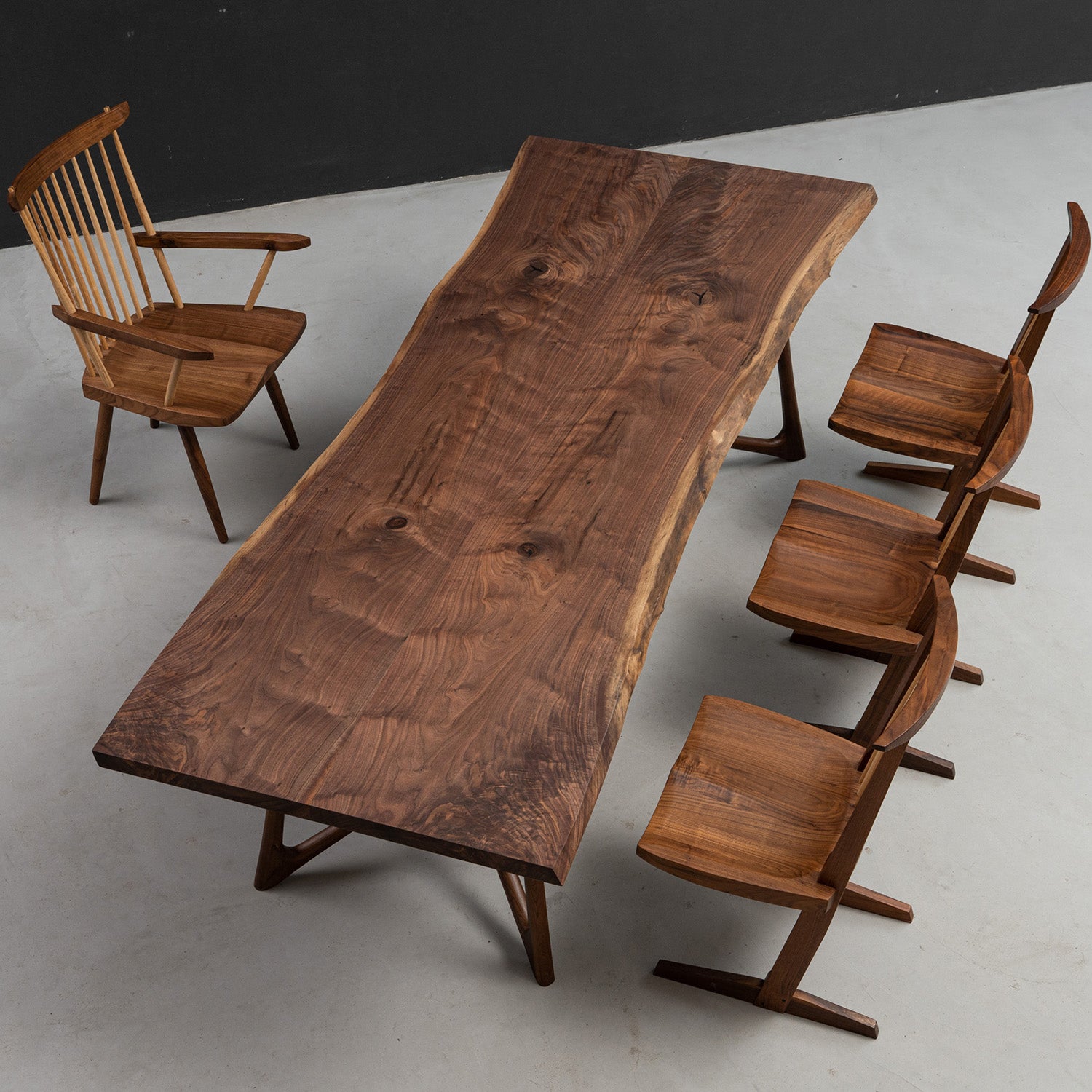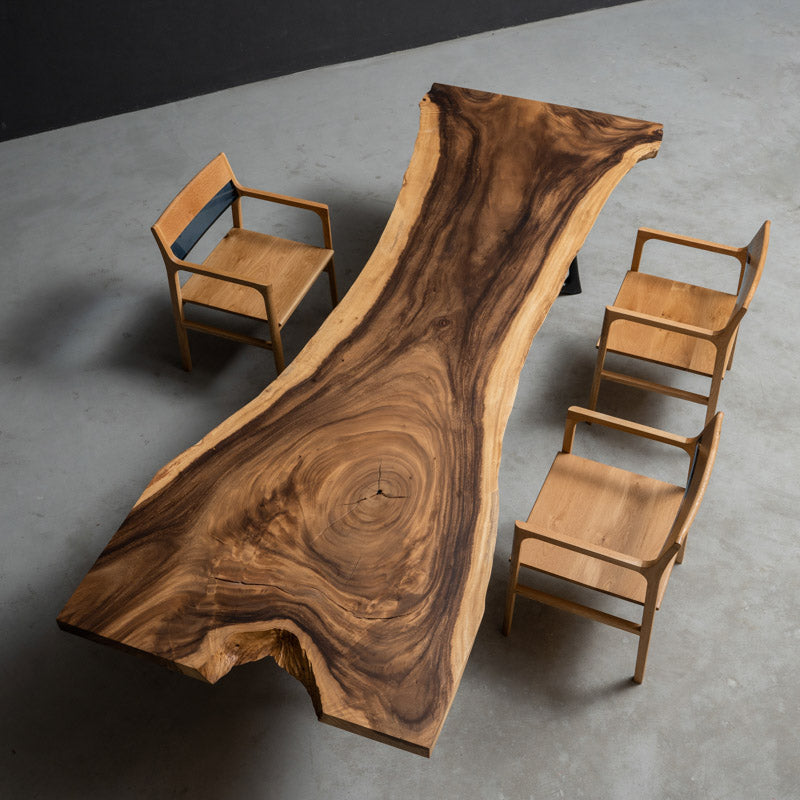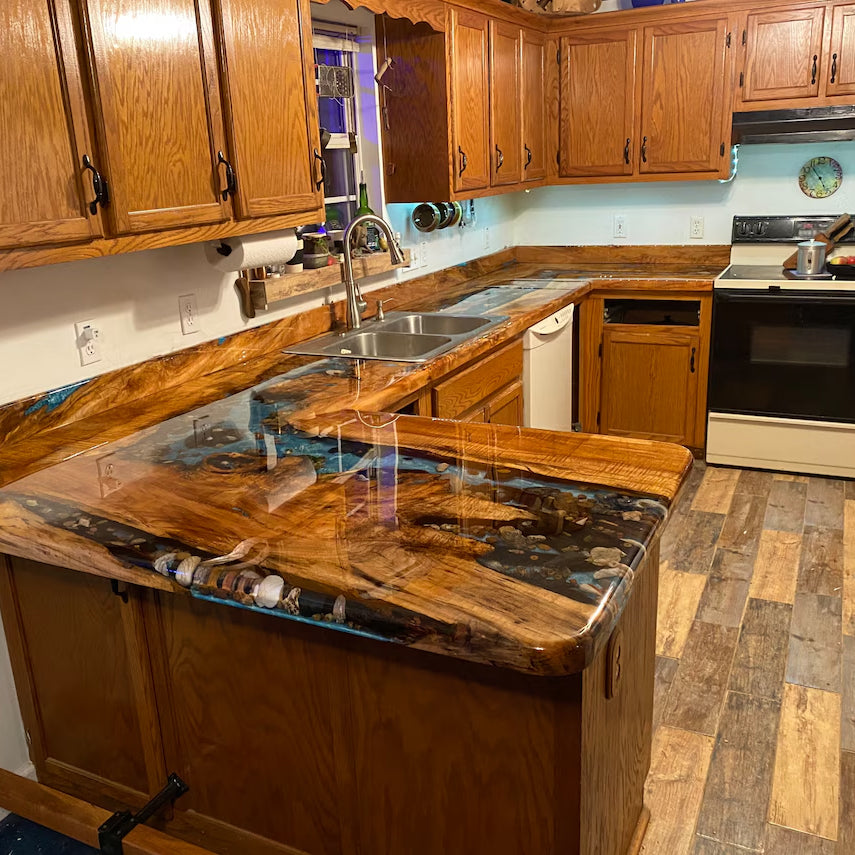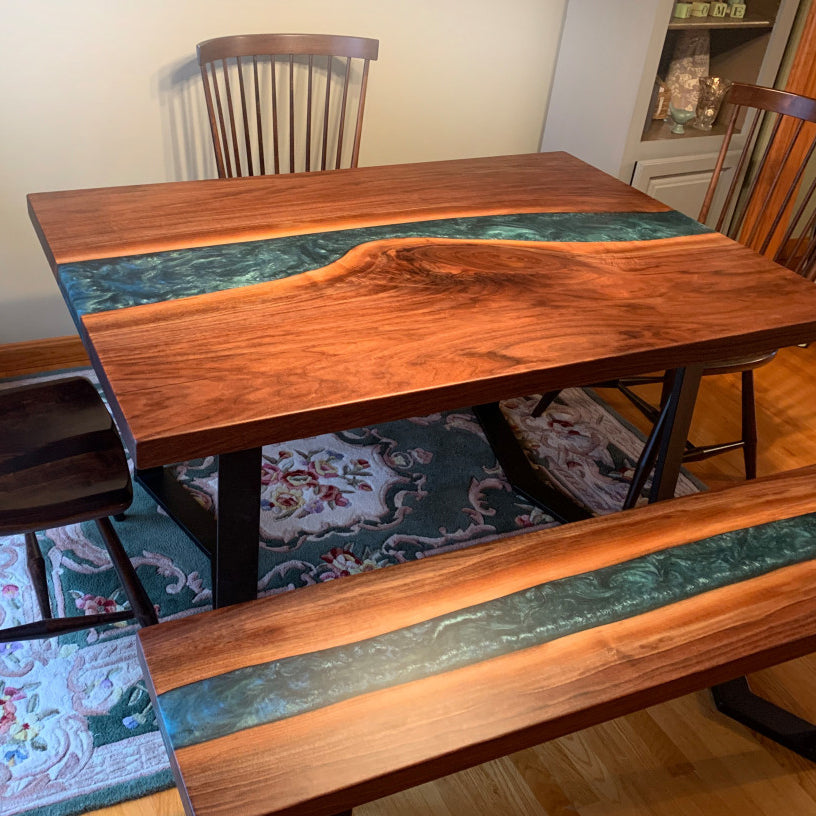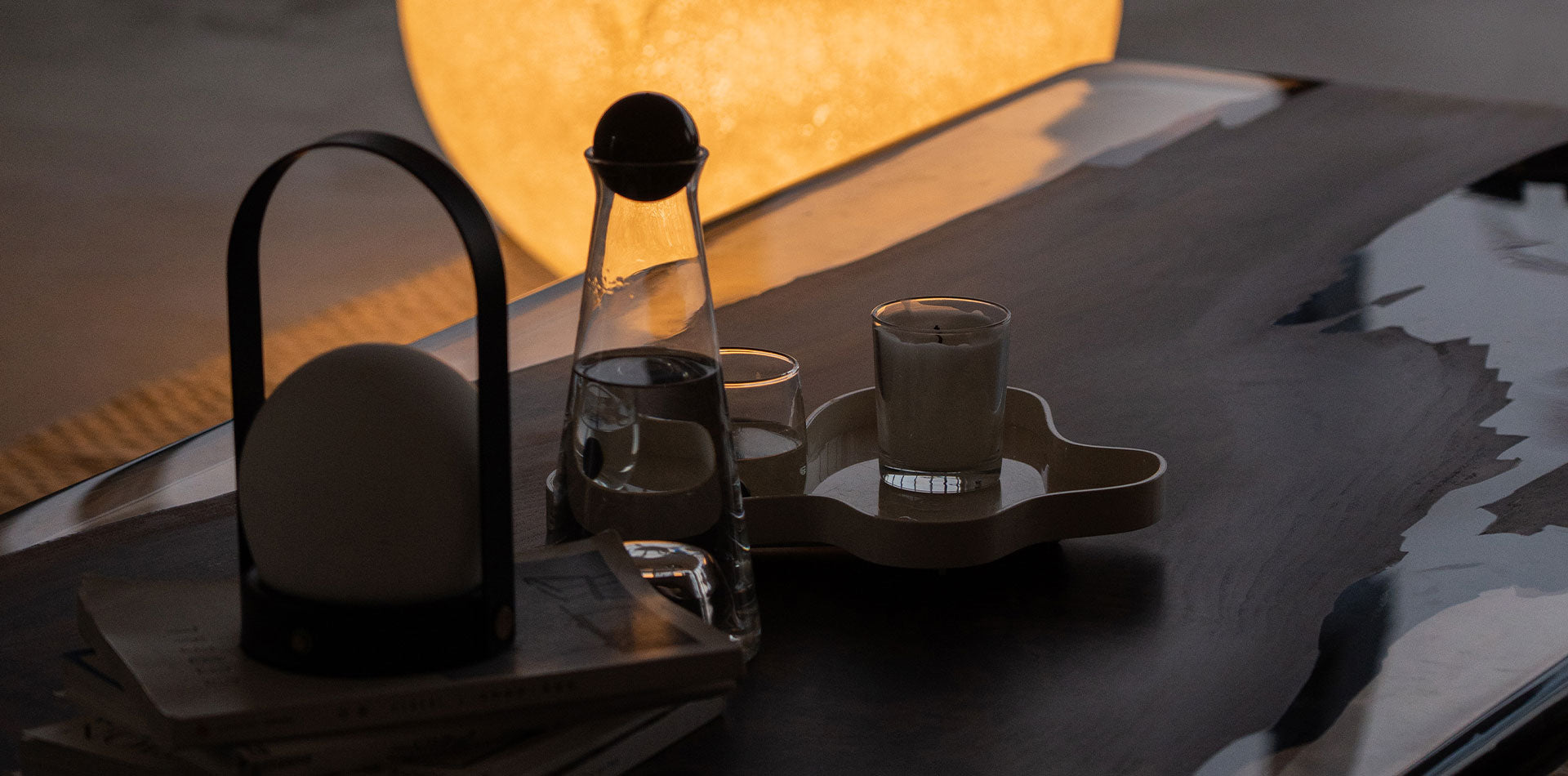I know you are very excited right now to find a beautifully designed, affordable, and good-quality epoxy table on the Kanaza website. But the first time you are buying an epoxy table online and faced with so many choices, you must be very agonized on how to pick a suitable piece of wood for your beautiful table.
Take it easy, Kanaza will give you a professional perspective on the pros and cons of several common woods and guide you on how to make an informed choice.
Well, let's get started!
Different woods naturally present different characteristics, taking into account factors such as wood species, characteristics, size, and price. For example, black walnut, while more expensive, has a high density and excellent durability that make it a popular choice for many. However, poplar, while less dense but more expensive due to its scarcity, is also noteworthy for its characteristics, advantages and disadvantages.The following are specific manifestations:
Black walnut
The dark brown color always looks noble, and the detailed straight grain gives it character and makes it suitable for modern minimalist or vintage style furniture. In addition, the density of high-quality lightweight, and very shock-resistant, can withstand greater pressure, has high wear resistance, is easy to maintain, and a mild soapy water and a soft damp rag can make it look as good as new, which makes it the first choice of many people in the office and home.
With so many advantages, the black walnut price is certainly not too economical, however, the high price is not enough to be his disadvantage. Like most hardwoods, black walnut, although durable, is prone to cracking, especially if not dried properly, and he is not suitable for direct sunlight and humid locations, which can make him not look so good and therefore require careful maintenance.
If you are on a budget, don't hesitate to go for black walnut, it will make your room look very premium!
Walnut
A close relative of North American black walnut, also known as white walnut (Juglans cinerea), it is a light tan to golden brown color, although over time it will turn a warmer, lighter brown color that looks softer than black walnut and looks more appealing by the wavy grain.
Compared to black walnut, walnut has fewer qualities, but of course, it is relatively inexpensive. Walnut density is also low, and black walnut low and softer. The surface of the carving pattern will be easier, for some "artists" to carve on, which shows that the durability of walnut relative to black walnut is weak, not as corrosion-resistant as black walnut, and needs to be more carefully cared for.
If you're not on a budget and prefer a bright and warm style, then walnut is the way to go!
Poplar
Cream-colored poplar is also popular with many people, poplar is a hardwood, but it's lighter than many hardwoods, which can be an advantage if you need a table that's easy to move around. His soft texture absorbs stains and paints well, which allows for custom tables and shapes in a variety of colors, making him one of the best choices for epoxy tables!
However, due to the soft nature of poplar wood, it is prone to dents and scratches, which is not ideal for areas of heavy use or homes with pets or children. But that's okay, epoxy will protect the tabletop, but the exposed areas will need a little more care and attention from you. Poplar has a relatively simple and uninteresting grain pattern compared to the rich natural grain of black walnut and walnut, which can be a drawback if you're looking for a table with a more distinctive natural look. If you prefer a simple, plain table, poplar may be a good choice.
Ash
Ash wood is often seen in everyday homes and is loved for its sturdiness, earthquake resistance, and versatility, in addition to its slightly wavy grain and just the right amount of light coloring that is popular in modern home decoration such as American and Scandinavian furniture. An interesting fact is that in the carriage era, ash wood was an important material for carriages. The great thing about ash wood is that it is more vegetatively rich than other scarce hardwoods, such as black walnut, and therefore the price is relatively favorable.
As with other hardwoods, while epoxy is inherently strong, humidity and temperature changes can cause ash wood to expand and contract, which puts pressure on the epoxy and causes cracking. Ash wood is susceptible to damage from ash borers, and while the epoxy top may offer some protection, it's still important to be aware of this potential problem, so this table is not suitable for outdoor use.
Cunninghamia
Cunninghamia is a less common wood choice than hardwoods such as ash or walnut, but with its warm reddish-brown color, unique grain pattern, and economical price, it may be an affordable option for a custom epoxy tables.
Cunninghamia is soft and easy to work with, allowing for creative freedom on the tabletop. Cunninghamia is lightweight, and the combination with epoxy is lighter than a solid hardwood epoxy table, which may be an advantage if you need an epoxy table that is easy to move around. While not as dense as some hardwoods, Cunninghamia remains relatively stable when properly dried and treated, and is less likely to warp or shrink. Best of all, Cunninghamia trees are fast-growing and widely distributed, making them more attractive to environmentalists than slower-growing hardwood species.
Cunninghamia is a very soft and low structural strength wood, even softer than poplar, which makes it highly susceptible to dents and scratches and may not be suitable for very large or heavy tables. Cunninghamia is not inherently waterproof and may be prone to warping or rotting if not sealed properly, and spills or moisture exposure may damage the wood, especially if not addressed quickly. All things considered, though, it looks like Cunninghamia is a good epoxy tabletop choice.
Olive
Olive wood has a beautiful golden brown color and a unique swirling grain pattern, which means a table made from olive wood will be one of a kind and therefore popular with the public. Olive wood is a very hard and dense wood that is very tough and durable, It is not easily dented or scratched, making it suitable for everyday use on a table. The biggest difference between olive wood and other woods is that it has a high oil content and is therefore better protected against moisture.
These advantages also contribute to its scarcity, as the olive tree grows slowly and mature wood takes years to harvest, often supply is not demanded on the market, making olive wood scarce and therefore a high-priced product. Similarly, although durable, olive wood is sensitive to fluctuations in temperature and humidity, which, if not properly cared for, may cause it to warp or crack over time.
Zebrawood
Zebrawood is a hardwood with a light yellow-brown base color and dark brown or black streaks along the grain, known for its distinctive streaky texture that resembles zebra stripes and would be very striking made into an epoxy table. Zebrawood is a dense, hardwood that resists scratches, dents and wear. If properly cared for, a zebrawood epoxy table will last for many years. And like olive wood it contains natural oils that give it a slight sheen along with some moisture resistance. It's worth noting that zebrawood is a relatively stable wood, with the least likelihood of warping or cracking of any hardwood species. In addition to this, zebrawood has good tonal properties and aesthetic qualities, and is often used to make musical instruments such as guitar parts and woodwinds.
Due to its scarcity and demand, zebrawood is usually more expensive than other hardwoods, making it a less cost-effective option compared to other woods, especially solid wood furniture, which can be more expensive. Over time, prolonged exposure to direct sunlight can cause zebrawood to fade and lose some of its vibrancy, so keep your zebrawood epoxy table in the shade.
Summarize
Choosing the right wood for a custom epoxy table involves considering a variety of factors and making the right choice based on personal preference and budget. We hope this information has helped you choose the ideal wood for your epoxy table and if you still have questions, please feel free to contact us and we will provide you with the best options for your doubts!
